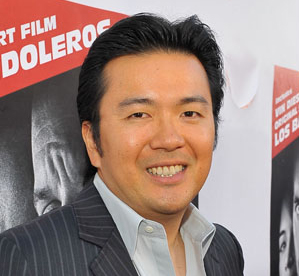Justin Lin Signs Universal Studios Production Deal
By wchung | 17 Dec, 2025
Director Justin Lin has signed a two-year first-look production deal with Universal Pictures for his Barstorm Pictures. Barnstorm will be housed on Universal’s lot and will focus on “tentpoles” — blockbusters that help support a slew of commercial flops — as well as uncover and develop “cutting-edge ideas” and “shepherd stories with a unique point of view.”
Barnstorm’s current projects include an as-yet untitled film about the highly decorated Japanese American 442nd Regimental Combat Team. Other projects include a spy thriller Leading Man and an untitled sci-fi/crime thriller to be directed by Robert Glickert.
Lin is personally attached to another installment of the Terminator series and a movie version of the manga Lone Wolf and Cub.
Lin has hired as his president of production Elaine Chin, a former development executive at 20th Century Fox and HBO Films.
Lin went into this deal from strength. Fast Five, his most recent project for Universal, has grossed over $600 million in global box office. It was the third installment he has directed in the Fast and Furious franchise.
“The success that we’ve shared making the last three ‘Fast’ films has created a strong bond between my team and many at Universal,” said Lin in the press release announcing the deal. “When the opportunity came up to house Barnstorm at the studio where I honed my skills, I saw the change to develop innovative projects with talented writers and directors who need to have their voices heard.”
“Justin’s vision and unique approach to filmmaking have been critical to the continued success of the ‘Fast and Furious’ franchise,” said Universal’s co-president of production, Jeff Kirschenbaum. “We know his creative instincts and signature style will make Barnstorm’s partnership with Universal a strong one.”
Justin Lin was born in 1973 in Taipei. His family moved to Buena Park where his parents opened up a strip mall fish-and-chips eatery that became the in-spot for hookers and pimps. Lin admits to having yearned desperately to fit in like most kids. He joined the Boy Scouts to achieve what he saw as American boyhood’s ultimate achievement: the Eagle Scout badge. Between Scouts, sports and school, Lin had little time to develop an interest in film. In high school he was an honor roll, academic decathalon kid who spent his free time absorbing SAT vocabulary words. But he also broke with stereotypes by becoming a varsity athlete.
“It’s funny because it was good I did all these activities but I did them for the wrong reasons,” he admitted. “I just wanted to prove people wrong.”
Continuing to defy model-minority expectations, Lin attended UCLA School of Film and Television and earned his BA and MFA in film directing. He worked as production coordinator of the Media Arts Center at the Japanese American National Museum in Los Angeles and gained some behind-the-camera experience directing the offbeat indie Shopping for Fangs. Time spent working with youth inspired a screenplay that became his short-form thesis script and later developed into Better Luck Tomorrow, the Asian American film that won him entry into Hollywood in 2003.
In the end, Better Luck Tomorrow was made sans investors for $250,000 from ten maxed-out credit cards and 20,000 feet of free Kodak film. Once the film made it to Sundance, studio execs who couldn’t be bothered to return a phone call were frantic to court Lin. At its Sundance screening BLT sparked intense debate. An audience member’s attack on its amorality led to critic Roger Ebert’s vocal support. Ebert and Peter Travers of Rolling Stone gave it money reviews and accelerated interest in its acquisition. Three companies vied for acquisition rights. Lin accepted MTV’s offer though it wasn’t the biggest.
“This other company offered more money but they wanted to change the film,” Lin recalls. “I felt that it would be disrespectful for everyone involved in the film to allow this.”
Better Luck Tomorrow was the first Asian American film picked up for distribution at Sundance. And Variety magazine crowned Lin one of 2002’s top ten directors to watch. MTV gave Lin enough cash to tie up cinematic loose ends. He added new scenes, tightened the editing and “toned down” the cynical ending. BLT was released by MTV Films on April 11, 2003 in 13 theaters earning an average of $27,752 per location. In its first weekend it turned a profit with its $360,772 take.
Lin followed up BLT by directing full-budget studio projects like The Tenth Justice (2004), Spotlighting (2005), Annapolis (2005) and Oldboy (2006).

Justin Lin won entry into Hollywood with the Asian American classic Better Luck Tomorrow, made for $250,000 in 2001.
Asian American Success Stories
- The 130 Most Inspiring Asian Americans of All Time
- 12 Most Brilliant Asian Americans
- Greatest Asian American War Heroes
- Asian American Digital Pioneers
- New Asian American Imagemakers
- Asian American Innovators
- The 20 Most Inspiring Asian Sports Stars
- 5 Most Daring Asian Americans
- Surprising Superstars
- TV’s Hottest Asians
- 100 Greatest Asian American Entrepreneurs
- Asian American Wonder Women
- Greatest Asian American Rags-to-Riches Stories
- Notable Asian American Professionals

